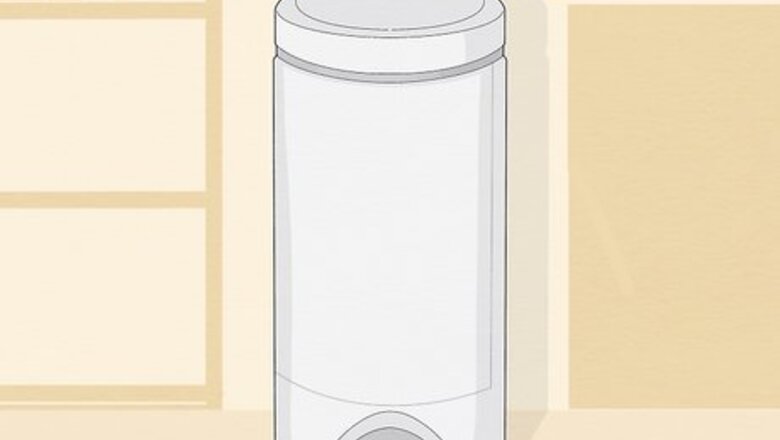
views
- Dispose of dirty diapers immediately. Use a diaper pail to minimize odors from diaper trash, and plan to empty it once a day.
- Make a homemade air freshener out of baking soda. You can also place dryer sheets in trash cans and drawers to add a fresh scent to the environment.
- To avoid stale air, open windows in the baby's room at least once a day and change their sheets at least once a week.
Invest in a diaper pail.
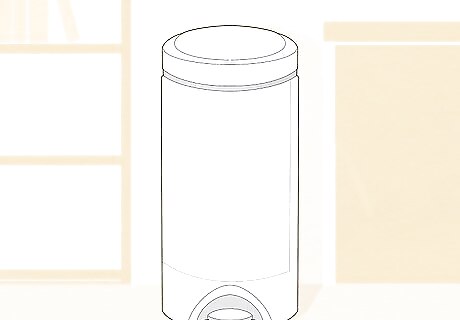
Garbage cans with built-in diaper lids help block smelly odors. Diaper pails are all the rage these days because, with each toss, the pail automatically seals out the stink. This handy tool can reduce the number of times you have to take out the nursery trash, helping your baby’s space stay fresh for longer. The Ubbi Steel Diaper Pail and Munchkin Step are deemed the best and most cost-effective diaper pails on the market. Consider using a diaper pail deodorizer inside your pail to deodorize odors while the lid’s closed.
Throw out dirty diapers immediately.
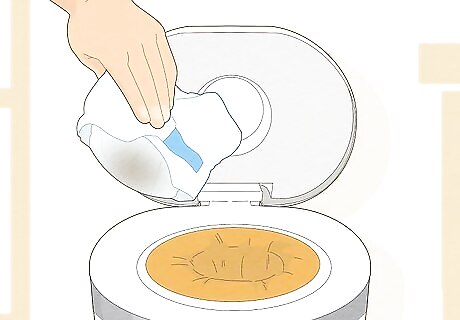
Dirty diaper smells get stronger the longer they sit, so toss them out. Rather than setting a dirty diaper aside to throw away later, throw it in a lidded trash can right away. Better yet, toss the soiled package in an outdoor trash can to keep the stink as far from the house as possible. Set a trash can or diaper pail near the changing table to make clean-up that much easier. Use odor-blocking trash bags for extra stink protection. Wrap the diaper in a plastic grocery bag or dog poop bag before throwing it away to lock in odor.
Take the trash out every day.
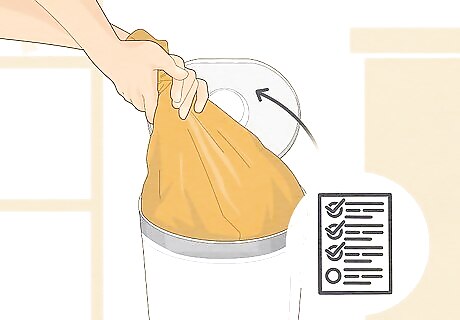
The more you add to a trash can or diaper pail, the more it’ll smell. Make taking out the nursery trash a part of your daily routine. This will help the room stay fresh, and soon it’ll become a normal part of your routine. Add some more chores, like vacuuming or picking up toys, to the evening trash run to keep the baby’s room fresh and clean every day.
Change the baby’s diaper in another room.
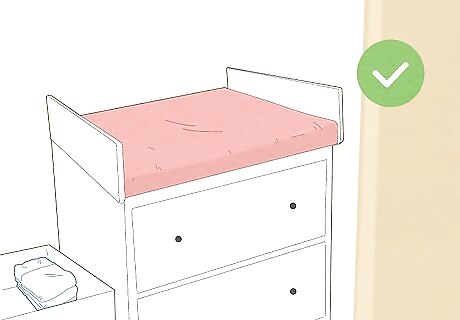
Take the baby into another room if smells start to linger. If your baby’s nursery doesn’t have good airflow or an openable window, try changing their diapers in a space that does. Maybe that’s the living room, dining room, or outdoor space like the patio. Clean and disinfect any area you use to change a baby, wiping down all surfaces and tossing blankets in the wash.
Clean the changing station after each use.
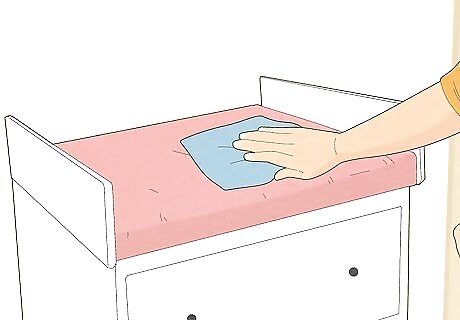
Odors can linger on surfaces used to change a baby, so always disinfect. Once your baby is clean and off the changing table, wipe the area with a baby wipe or damp paper towel. Then, use a bleach- or alcohol-based disinfectant spray or wipe to kill any lingering bacteria and smells. Commercial disinfectants registered with the Environmental Protection Agency (EPA) are safe to use on changing tables as long as the proper drying time and ventilation are applied based on the disinfectant’s instructions.
Air out the baby’s room.
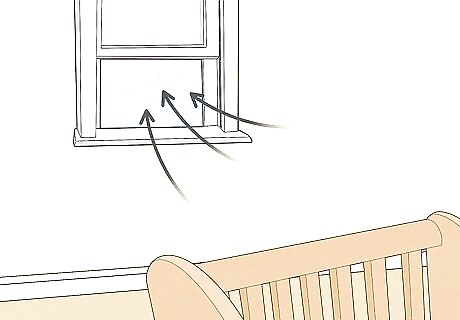
Open a window to let trapped smelly odors out. When it’s nice outside, open the nursery window and door, letting a soft breeze roll through. If you can’t open a window, turn on a ceiling fan (if the nursery has one) to improve airflow. Air purifiers can also help airflow and circulate throughout a room.
Tuck dryer sheets in drawers and trash cans.
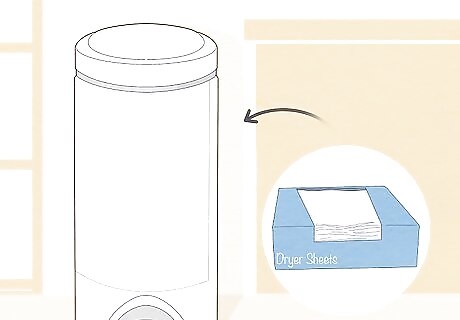
The fresh scent of dryer sheets can help mask persistent odors. Grab a few fabric or dryer sheets from the laundry room and bring them into the nursery. Place them in drawers, under the changing table mattress, or at the bottom of a trash can. Their fresh scent will be faint but constant. Replace the dryer sheets in drawers every other week and in trash cans when you take out the trash.
Change the baby’s sheets regularly.
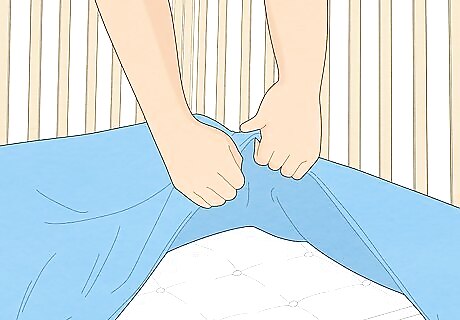
Clean up any baby messes that can leave a nursery smelling funky. Believe it or not, many funky odors come from the crib. Look over all the blankets and sheets in the nursery for drool, spit-up, and diaper leak stains (that means your cuddling blankets too). If you find any, toss the bedding in the wash and switch it out for something clean and fresh. Try washing or changing crib sheets once a week. Keep a pair of spare sheets in the nursery closet for clean-up emergencies. Ensure that the crib sheets are snug and tight around the mattress to avoid entanglement.
Make a baking soda air freshener.
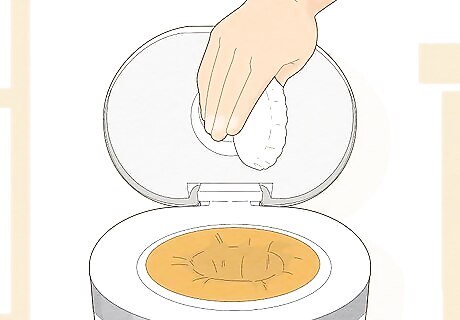
Baking soda is a cheap, natural deodorizer that can neutralize nursery odors. If odors continue to linger even after you dispose of dirty diapers, try placing a DIY baking soda air freshener at the bottom of your trash can or diaper pail. Cut off the bottom of a plastic bottle and add 2 tbsp (28.3 g) to the makeshift dish. Then, add 2 to 3 drops of your favorite essential oil and set it down in your trash can before adding a bag. If you don’t have essential oils, no worries! The air freshener will still absorb odors without them.
Diffuse essential oils.
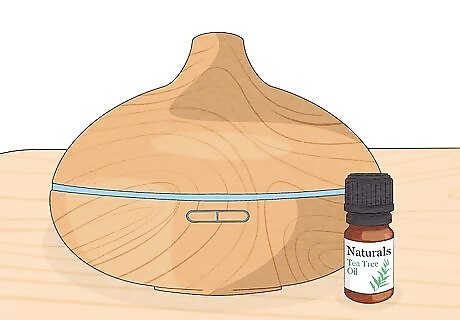
Lavender, frankincense, and tea tree can freshen a baby’s space. Aromatherapy can be used to block out odors and provide a soothing space for you and your baby. Diffusing essential oils with an oil diffuser neutralizes and masks smells with a pleasant scent; however, it’s important to understand the risks of using essential oils around infants. Follow these tips to safely use essential oils around your baby: Talk to your pediatrician before using essential oils around a baby. Buy oils from credible companies that list the scientific names of the oils. Introduce your baby to essential oils slowly by wearing them on your skin. Add less oil to a diffuser to not overwhelm a baby with a scent. Set the diffuser to run for 10-minute spurts when the baby is in the room or on a constant cycle when the baby isn’t in the room. Steer clear of peppermint oil as it can increase a risk for seizures in children younger than 30 months.
Avoid leaving bottles in the baby’s room.
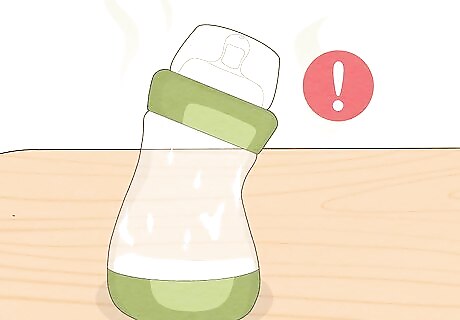
Keep used bottles out of the nursery as spoiled milk can stink. If you feed a baby in their nursery, make sure to take the bottle with you on the way out. This way, you won’t walk into a sour or rancid smell later. Breast milk can naturally have an odd odor, especially after it’s been refrigerated or frozen. Infant formula can spoil if it’s left out for more than 2 hours, and it’s advised to throw out any formula left in the bottle after feeding, as bacteria can quickly grow from saliva and formula mixing.




















Comments
0 comment